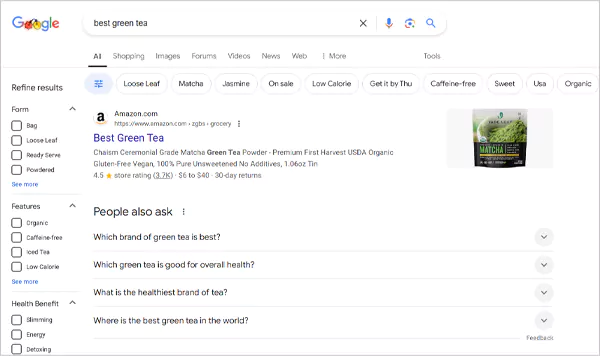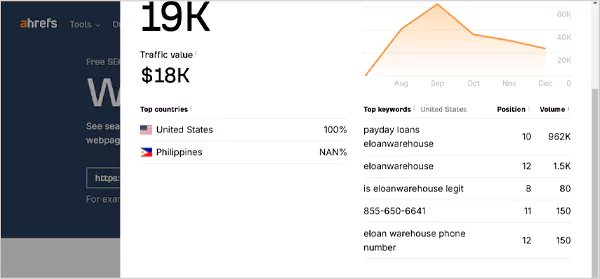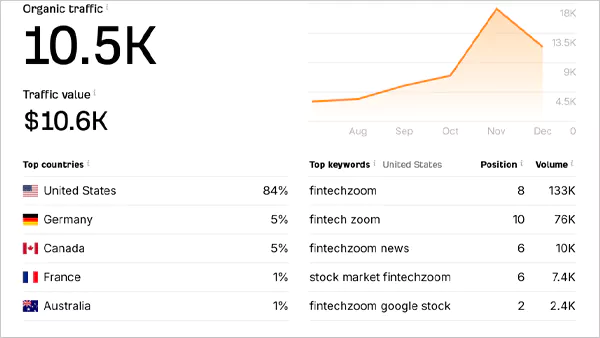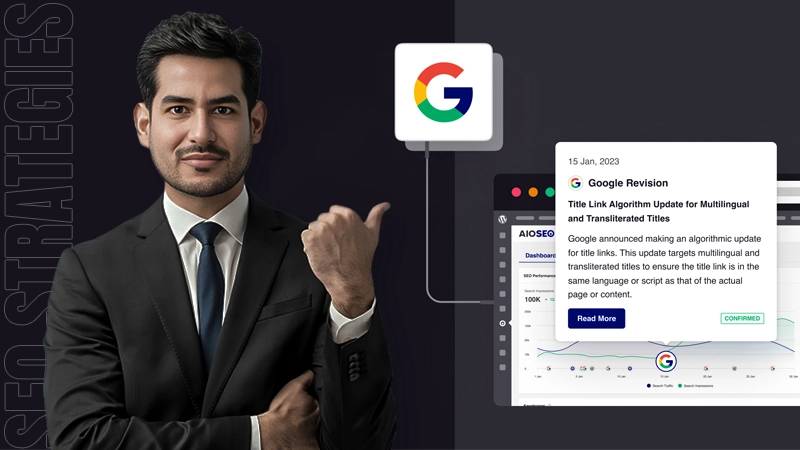If you are a website admin or someone interested in search engine optimization, the question “How many keywords should you focus on per page?” must have been blinked in your mind. It is a crucial factor holding the potential to affect the ranking of your web pages on search engine result pages (SERPs).
When you conduct a web-based search, you will encounter dozens of distinct outcomes, each imparting specific details. But worry not, as we have pilled up all the information and have shared thoroughly reviewed and researched information.
So, let’s directly hop on the topic and solve all the misunderstandings floating around the web regarding keyword usage.
Why are Keywords So Important for Ranking?
Going with a perfect and appropriate keyword for your website’s ranking is an optimal choice. In fact, a webpage without proper SEO keyword research would result in stalemate results. Hence, it is advised to know, “How many keywords are needed for a website to rank?”
Using keyword ranking appropriately directs traffic based on what people are searching for. It conveys what a web page is about to the search engines. Apart from this, the volume of keywords tells how many people are searching for the same query.
Search engines don’t rank webpages without any incorporation of keywords, as they won’t understand the context of the query covered in the page.
How to Use SEO Keywords?
Before directly hopping onto creating an optimized page, admins must focus on the following SEO elements to optimally use keywords.
1. Keyword Density
Keyword density is a metric that measures how often a keyword should appear in a piece of content. It is usually defined in the form of a percentage, where the total number of incorporated keywords is divided by the total number of words.
Keyword Density= Total number of keywords/Total numbr of words
Although there is no certain keyword density mentioned anywhere, 1%–2% is considered an ideal range decided by SEO professionals for all search engines, whether it’s Google or Bing.
2. Keyword Prominence and Proximity
Keyword prominence shows where the keyword should be placed in the content to have a greater impact on ranking. In simple words, it refers to the importance and visibility of a keyword in content.
However, on the other hand, proximity determines how far or close a keyword should be placed in a piece of content. Common search terms should not be placed too close or too far away from each other, as it may affect the relevancy of the content on SERPs. This approach will also help you drive more traffic to your GMB profile.
How Many Keywords Should You Focus On Per Page?
To target an audience for a specific niche and query, the following are the standards for keyword incorporation.
Single Primary Keyword
While preparing content for your webpage, make sure to target a single primary or main keyword. It ensures that your page is ranked for a single user’s query and maintains a relevancy factor in the search engine results pages.
Even though webpages are ranked for multiple search terms, you don’t need to add multiple primary keywords.

Make sure to utilize keyword ranking to choose one that has a high volume of searches with low competition coverage.
How Often Should Secondary Keywords Appear?
Before exploring, “How often should secondary keywords appear?” You first need to delve into the meaning of secondary keywords. These are the variations of primary search terms that are closely related to the user’s queries. For example, the secondary keywords for “Coffee cup” would be “unique coffee mugs”, “cool mugs”, “rounded mugs”, “fancy mugs”, etc.
Here, in this picture, we have shown how the secondary keywords also play a prominent role in bridging high traffic to the published content.

Make sure to incorporate secondary keywords as per the following table to maximize the results.
| Word Limit | Secondary Keywords |
| 500-600 | 2 to 4 |
| 800-1200 | 5 to 7 |
| 1400-2000 | 8 to 10 |
Remember to keep the density of secondary keywords less than 1% so that the content’s relevancy is maintained with the primary search term. Besides this, many analysts query, “How often should secondary keywords appear?” The answer is the same, as the primary keywords are embedded.
Is a Single Primary Keyword Enough?
Yes, using a single main or primary keyword is enough to cover the searcher’s intent. It will help you cover a single broad topic at a time with low competition. Following that, the below-mentioned are the reasons why you should only use a single primary keyword for your content.
1. Page Featuring for similar Keywords

Have you ever observed that search engines automatically suggest the results of your query when misspelled or a similar context is mentioned?
It happens because the search engines are optimized enough to match and find similar results to the searcher’s query. Similarly, these search engines show matching results for different variations of keywords. Hence, focusing on a single main keyword is enough to target multiple similar ones.
2. Focusing on One Wide Topic Optimizes Content for Several Keywords

It is being observed that even optimizing your content for one single search term is chosen after analyzing keyword ranking. It can result in ranking for hundreds of different and similar topics. This shows that you don’t need to intentionally incorporate a variety of keywords for ranking on multiple subjects. Instead, just focus on covering a wide topic with multiple subheads. The page will automatically get ranked for similar tags.
3. Target One Defined Topic

Since Google crawls the online content of web pages for categorization in its database, targeting multiple main keywords will only create a nuisance in the indexing process. Apart from this, covering different queries on a single web page will point out the irrelevancy to the search engines, resulting in not indexing the pages or not featuring in the search engine result pages.
You can use redirection, like linking strategies, to direct the reader to your other pages covering different topics.
Why Target a Single Primary Keyword?
Using more than one search term for a particular web page is unhelpful. That is why, in this section, we have mentioned the benefits of targeting a single keyword that can help you land on the ranking pages:
1. Targeted Audience’s Attention Grabbing
Using a single primary keyword not only helps to avoid keyword stuffing but also delivers focused content with well-structured coverage. Imagine taking 3 to 4 different primary keywords into consideration for a particular web page. It will only create a hassle on the page, ruining the page structure.
The whole page will be impossible to define. From the title to the subheads, nothing would make any sense to conclude, resulting in a lack of relevancy to the SERPs.
By focusing on a single keyword, preparing the title, meta description, and structure of the content will be easy.
2. Less Risk of Keyword Dilution
Keyword dilution refers to a phenomenon where the power of keywords reduces due to the use of multiple ones for a single page. Therefore, it is preferred to center your research and content coverage on a single focus term with a high search volume and low competition.
For example, if you are ranking your page for informative intent on “best movie streaming platforms” and “how to increase website traffic,” simultaneously, it is more likely that it won’t rank on any of those keywords.
3. Better Conversions
Conversion plays a pivotal role in the success of business. Targeting a single focus keyword for your pages converges the potential audience to your website, ultimately increasing the conversions with a high click-through rate.
To further increase this effect, try using a call to action in your content, as it is deemed to be a great promoter of web conversions.
How Many SEO Keywords Should I Use on the Homepage?
After the call with some of the best SEO experts in the world on “How many keywords should you focus on per page?” A similar query is raised for home pages.
While constructing and preparing a homepage for your website, you will definitely want to target all the relevant keywords to grab the attention of users. But instead of covering all the searched terms for your products and services, focus on narrowing the research to your core business activity. Optimize your homepage’s content across keywords connecting with your business operations.
Furthermore, target a single keyword with a density ranging from 0% to 2%, and make sure the prominence and proximity are used with the greatest significance.
Finding SEO Keywords for Ranking on SERP
Discovering keywords for your web pages is a necessary element in search engine optimization. This includes a variety of efforts and consideration of metrics to choose the right search term coverage. Therefore, in this section, we have mentioned all the scopes to find primary and secondary search phrases.
1. Primary Keywords
You can use the following methods to find the main topic for your content coverage.
Keyword Research Tools
When it comes to searching for the best and well-researched search terms based on several metrics like search volume, keyword difficulty, competition, etc., opting for research tools is the optimal choice.
To perceive using them, you first have to select a competent tool, as there are hundreds of different tools available on the internet. Here are some of the best keyword research tools used by SEO professionals.
- Google Keyword Planner
- Ahrefs
- SEMrush
- Google Trends
- Google Search Console
Competitors Analyses
Another proficient scope for researching primary keywords for your web pages is competitors’ content coverage. Review the topics covered by the competitors and try shortlisting content to generate some relevant search phrases.
Once you have made up your mind on some keywords, it is time to decide on topics for actual coverage on your web pages. This includes using metrics like keyword volume, difficulty, intent, cost per click, etc.
For determining these metrics on your chosen terms, you can use tools like Ahrefs and SEMrush to conjugate the results within a few seconds.
Related Keywords to Already Covered Topics
An advanced and simple keyword research strategy that has been employed by all SEO professionals is covering the related key phrases to the already covered topics. This approach eases up the linking approach, creating a tree-linking structure.
As compared to other methods, this approach is easier and more boundary-bounded, with keywords subsidiary to other targeted topics of the website.
2. Secondary Keywords
Along with primary keywords, you also need to perform research for secondary search terms. Hence, the following are the different methods to find secondary keywords for your web pages.
Autocomplete
The Google search bar comprises a feature that suggests related queries to the searched ones. These suggestions can be used as secondary keywords along with the primary or original query of people.
Make sure to choose terms with a relatively high search volume and low difficulty.
People Also Ask (PAA)
Along with the autocomplete feature on the search bar, Google also features a specific section called “People Also Ask. This section covers more intricate and similar queries with a minute change in the wording. You can cover these as a secondary keyword in your content, making your web page offer a wider and more in-depth examination.
Keyword Research Tools
Conducting keyword research using the full-fledged research tool eliminates the efforts to find the best secondary search terms. While searching for primary keywords on your research tools, you get 100s of different key phrases. Use any of that with high volume and try to gather more and more organic traffic to your website.
Conclusion
To actively rank and hold a ranking on Google search pages, you only need one primary keyword. Going with multiple main keywords will not only create a hassle on the page structure but will also negatively affect the relevancy of your webpage. Along with this, don’t forget to incorporate a few variation terms or say secondary keywords. These help generate extra traffic by ranking the page for various other queries.
How many times can we use an H1 tag on a web page?
According to the Core Web Vitals of Google, only 1 H1 tag can be used on one page. Anything above this will create confusion among the searchers.
What is the ideal page speed for SEO?
Anything between 0 and 3 seconds is considered to be a good page loading speed in SEO.
Can I use multiple keyword research tools?
Yes, multiple keyword research tools can be used to generate a list of prospective keywords, but the result will not vary much. Therefore, it is preferred to stick to a single tool.
How many keywords are needed for a website to rank?
You need a couple of keywords to make your website rank on the Google SERPs. These keywords include one primary and a few secondary keywords.
Is it possible to rank on a secondary keyword?
Yes, a web page can also grab attention via its secondary keywords. It depends on the metrics, like search volume and keyword difficulty.











